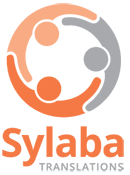The Arabic Community in Australia
We keep talking about the importance of understanding your audience before you start writing for them. When communicating with the Arabic community in Australia, you will make a greater impact if you know their baseline knowledge, learning preferences and so on. In this article, you will learn some of the things that you need to research when communicating with the Arabic community in Australia.
Some of the things that you need to find out when communicating with the Arabic community in Australia are:
- The basics: settlement history, demographics, age groups, countries of origin, ethnicity.
- Baseline knowledge: what does the Arabic community already know about your topic?
- Learning preferences: how does the community prefer to consume information? Are booklets, fact sheets or other printouts effective? Do they respond better to group information sessions?
- Literacy levels: how proficient are they in English and in Arabic? Can the majority of your target audience read Arabic? Or would it make a greater impact to produce a podcast or a video?
- Cultural sensitivities: are there any cultural sensitivities that you need to consider before you produce the resources?
So how do you get to know the Arabic Community in Australia?
There are great resources produced by ethno-specific community organisations. However, nothing will do the job as well as building relationships with representatives of the Arabic community.
Relationship-building is key when it comes to making an impact in Australian diverse communities. Here are some links to organisations and resources that you can use at the first stages of your research:
Always remember: the more you know about the Arabic community, the easier it will be to make an impact in the lives of Australian Arabs.
Language and Communication
The Arabic community in Australia predominantly speaks Arabic and English, and their language proficiency may vary. Effective communication with the community involves understanding their language preferences and using clear, simple language with contextual explanations. The use of visual aids and multimedia resources can also enhance understanding. Professional translators or interpreters and building relationships with community members can also improve communication accuracy and cultural appropriateness.
Importance of Cultural Competency
Cultural competency means understanding and respecting the culture of the Arabic community in Australia. It’s important because it helps you communicate in a way that is sensitive and respectful to their values and traditions. By being culturally competent, you can avoid misunderstandings and build trust with the community. It also allows you to create communication materials that are relatable and meaningful to them. Overall, cultural competency helps you connect better with the Arabic community and have more effective and respectful interactions.
Healthcare Access
Researching healthcare access and barriers faced by the Arabic community in Australia helps us understand why they may have difficulty getting the healthcare they need. It could be because of language differences, cultural beliefs, lack of awareness, money problems, or discrimination. By doing this research, we can come up with ways to make healthcare more accessible and improve their health. For example, we can provide interpreters, translate information into Arabic, or involve community leaders in finding solutions. The goal is to understand their needs and find ways to help them get the healthcare they deserve.
Community Engagement
Engaging with the Arabic community and building meaningful relationships can be achieved through a range of strategies that promote trust, respect, and inclusivity. Here are some effective strategies for community outreach and involvement:
- Work with community leaders and cultural advisors: Building relationships with community leaders and cultural advisors can help to establish trust and facilitate effective communication. These individuals can provide insights into the needs and preferences of the community and can help to ensure that outreach and engagement strategies are culturally appropriate.
- Develop partnerships with local organizations: Collaborating with local organizations, such as community centers or religious institutions, can help to increase the visibility and reach of your engagement efforts. These partnerships can also help to build trust and establish connections with community members.
- Provide resources in Arabic: Providing resources in Arabic can help to overcome language barriers and ensure that information is accessible to all members of the community. This can include written materials, multimedia resources, or workshops and events that are conducted in Arabic.
- Hold events in community settings: Holding events in community settings, such as mosques or community centers, can help to increase the visibility and accessibility of your outreach efforts. These events can include workshops, health fairs, or cultural celebrations, and can provide opportunities for community members to engage with your organization and learn more about your work.
- Involve community members in program development: Involving community members in the development and delivery of programs can help to ensure that they are culturally appropriate and responsive to community needs. This can involve conducting focus groups or advisory panels or inviting community members to participate in program planning and implementation.
Language Preservation and Heritage
Exploring language preservation and cultural heritage initiatives in the Arabic community means understanding and supporting efforts to keep their language and traditions alive. Preserving the Arabic language helps with communication and passing down knowledge. Cultural heritage includes traditions, music, art, and historical landmarks that are important to the community. By recognizing and supporting these initiatives, we show respect for their identity and help maintain their cultural heritage. It also boosts self-esteem and strengthens their connection to their roots. Overall, it’s about valuing and celebrating their language and cultural practices.
By engaging with the Arabic community respectfully and inclusively, healthcare providers, government agencies, and community organizations can build meaningful relationships and promote greater social inclusion and equity.
At Sylaba Translations, we believe in translation excellence. To produce excellent translations, planning is key. So don’t rush through the research phase. The Arabic community in Australia deserves the best.
Stay tuned for the next community overview.
Make your next translation project count
Related Posts

Get a quote today
"*" indicates required fields
Subscribe today to receive the latest insights and updates from Sylaba Translations









